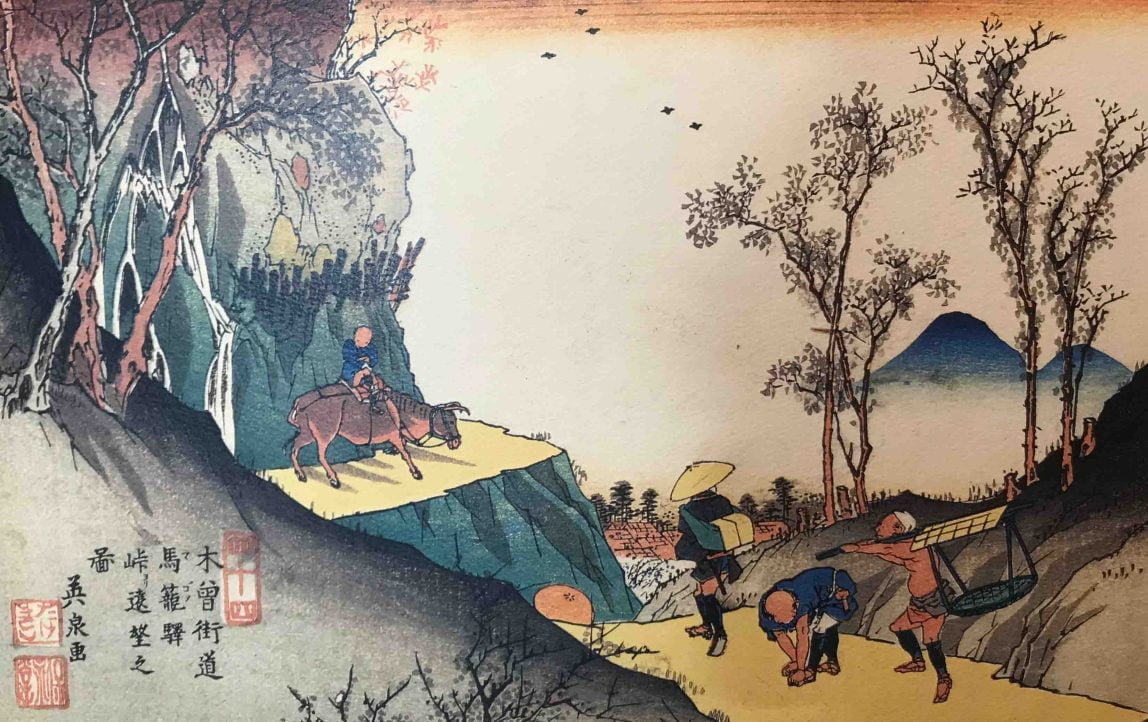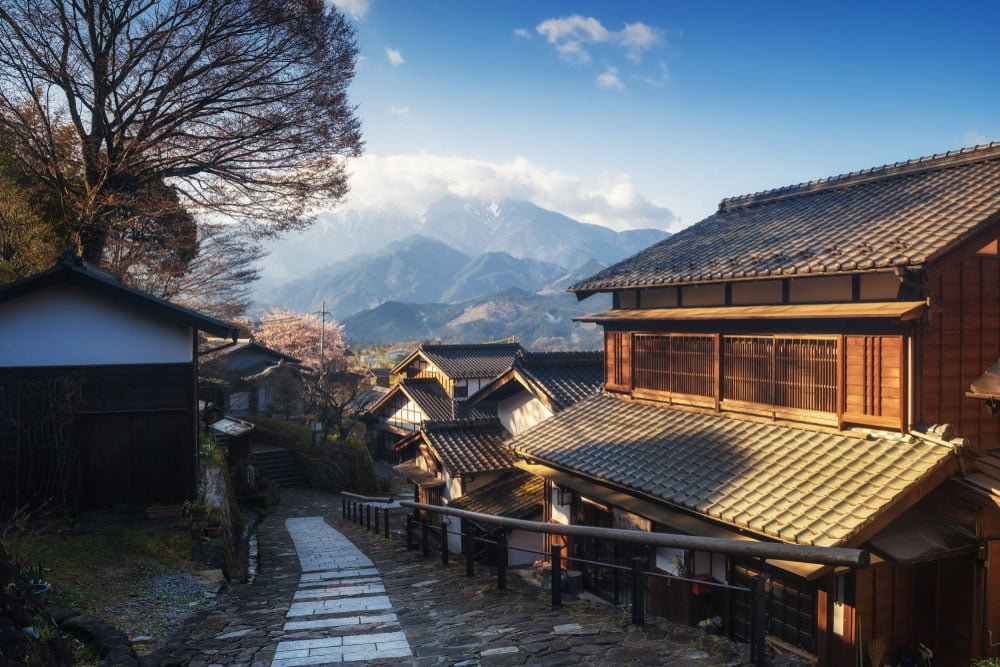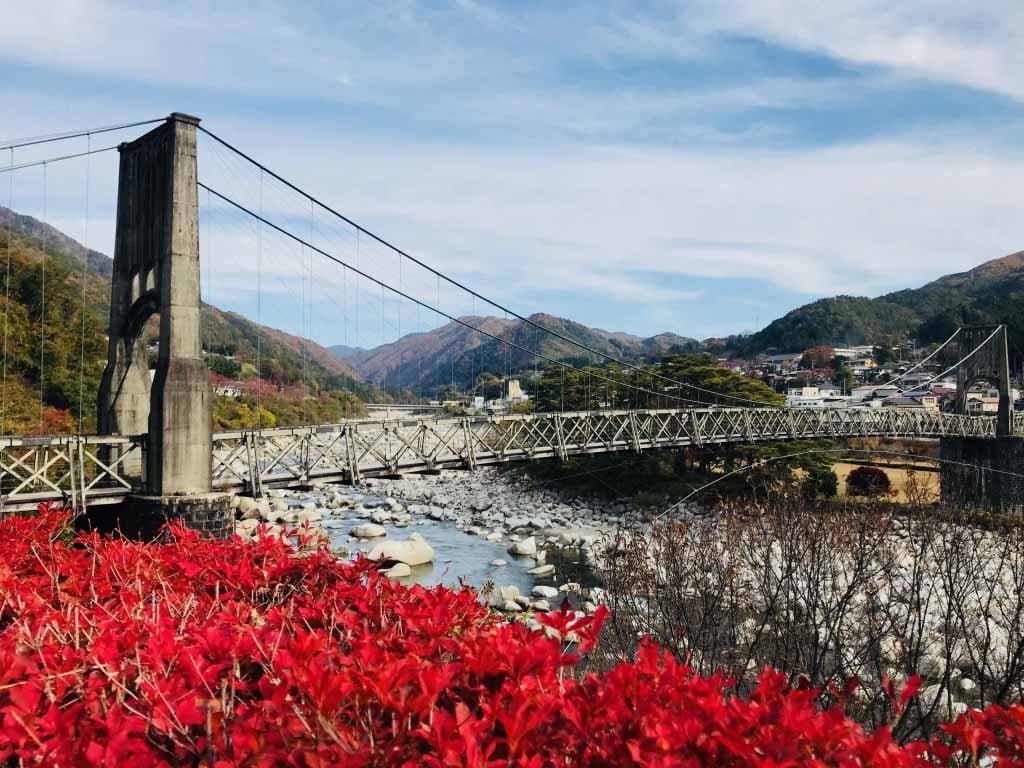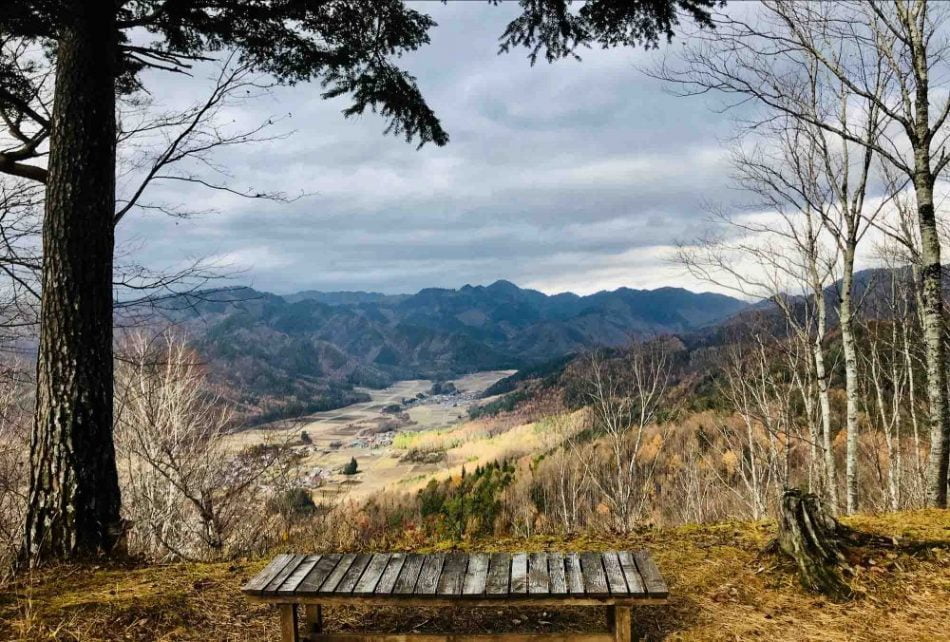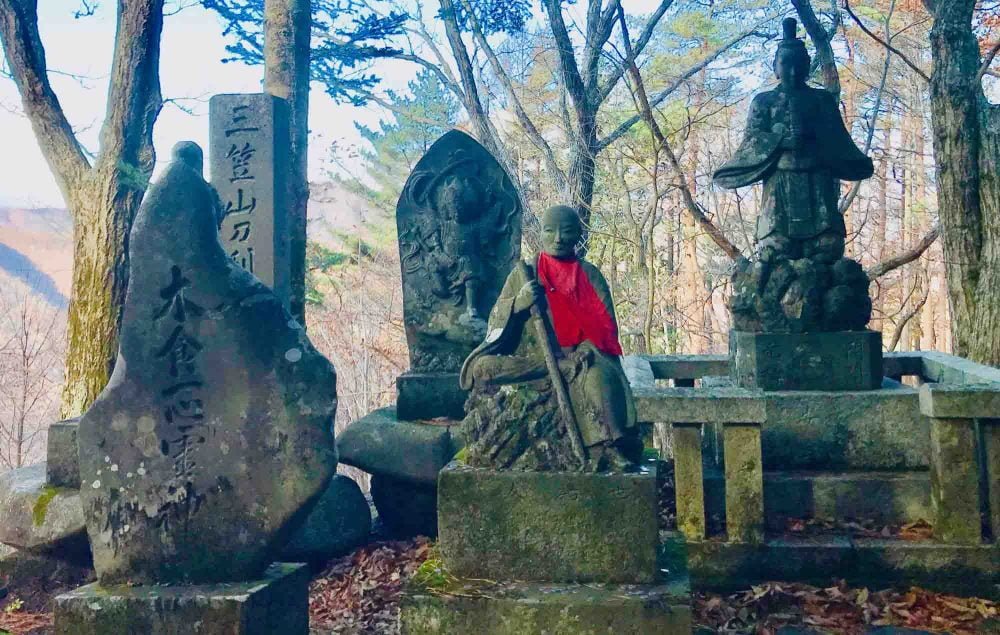 30 years' experience providing walking holidays worldwide
30 years' experience providing walking holidays worldwide-
SELF-GUIDED
-
7 DAYS
-
Moderate
OVERVIEW
OVERVIEW
The 500km long Nakasendo trail (literally meaning the ‘Middle Mountain Way’), has become one of Japan’s most famous hiking routes because of its breathtaking scenery. The walk makes its way over ancient paved paths, through well-preserved authentic Japanese towns, via cypress and cedar forest. Shrines and waterfalls dot the landscape as you make your way through the Kiso Valley, wedged between the sacred mountain of Mount Ontake and Mount Komagatake.
The walk was developed in the Edo period (1603-1868) and was used by feudal lords, samurai and merchants to provide access between Kyoto and Edo (now Tokyo). There are 69 ‘post towns’ or resting places en route, where you can stay in traditional Minshukus or Ryokan inns and bathe in hot springs. You have the option to shorten some of the days if you wish.
HIGHLIGHTS:
- Walk pack free on well-graded ancient trails, with superb views, through beautiful Japanese forest
- Experience historically significant post towns
- Soak up Japanese culture, passing rice paddies, Japanese gardens and traditional shops
- Pass through iconic Japanese red torii gates
- Visit the impressive Karasawa waterfall
- 6 nights accommodation in a family-run or small traditional Japanese Minshuku or Ryokan, some with onsens
- Daily Japanese breakfasts and dinners mostly served in elegant tatami mat settings
ITINERARY
WHAT’S INCLUDED
- 6 nights stay in an intimate family-run or smallish traditional Japanese ryokan accommodation
- Explore the beautiful Kaida Kogen Plateau in hills north of Kiso-Fukushima
- Walk with a light pack, with luggage transfers most days from accommodation to accommodation (please see Luggage Transfer section in General Info for details)
- Superb traditional multi-course meals for breakfast and dinner each day
- Itineraries can be flexible to shorten the walking or slow the trip down by adding more rest days
- Enjoy worry-free navigation with Stroll’s comprehensive walk notes
- On the ground support from local representatives
ACCOMMODATION & DINING
One of the highlights of this trip is staying each night in an excellent Ryokan or Minshuku.
Ryokans are what we would call a guesthouse and they are often quite different both in style and size.The rooms are in a Japanese style with tatami mats, shoji sliding doors, and futons for sleeping on. The larger Ryokan style hotels rooms may have actual beds but not always. Note that the rooms may or may not have ensuites.
The Onsen or bathing area is central to the experience of staying at Ryokan. The Onsens are usually communal and separated by gender.
The Japanese dinners and breakfast are much more elaborate affairs then what we are used to in the west. Almost always a traditional Kaiseki set meal is offered. There are options of eating from a buffet at the larger Ryokans.
A Minshuka is a family-run accommodation are more like a bed and breakfast with just say 2 to 4 rooms. The are very common in rural Japan and only usually frequented by Japanese people. The advantage of staying at a Minshuku is that you get to meet the local people and enjoy the Japanese culture at a much deeper level. The atmosphere at a Minshuka is more like that of staying in someone’s home with traditional meals served in a more intimate fashion. Note that baths and toilets are often shared.
Please note that we will endeavour to book the accommodation displayed. However, if it is not available, we will book alternative accommodation of the same standard.
GENERAL INFO
TRAVEL TO ENA
Tip – if you have not invested in a JR Rail Pass (only available outside Japan), you can save some money by buying a Non-Reserved Seat on the Shinkansen rather than a Reserved Seat. Check the Japan Transit Planner website (https://world.jorudan.co.jp/mln/en/) for approximate travel times and pricing.
You can get tickets from the JR ticket window just before the Shinkansen barrier gates. Even if you have a JR Rail Pass (which covers the cost of all JR line travel), you will need to show some sort of ticket to indicate your seat.
TRAVEL FROM TOKYO TO NAGOYA
Take the Tokaido Line Shinkansen bullet train from Tokyo Station to Nagoya.
Approx. travel time 1hr 45mins.
Tip – try to get a window seat on the right-hand side of the train for possible views of Mt Fuji on a clear day.
TRAVEL FROM OSAKA TO NAGOYA
Take the local train from Osaka to Shin-Osaka. Take the Tokaido Line Shinkansen bullet train from Shin-Osaka Station to Nagoya.
Approx. travel time 48mins.
TRAVEL FROM NAGOYA TO ENA
On arrival in Nagoya, take the JR Chuo Line (Rapid) from Nagoya to Ena. The Rapid service stops less often than the Local service. Both are of the same price and stop in Ena. Approx. travel time 1 hr. Cost (if no JR Rail Pass) approx. AUD$10.
The free “Japan Direct” rail app is very useful. Enter your station of origin and destination and all services, travel times, and costs are displayed. There is also an option to select for routes when travelling “with Japan Rail Pass”, too.
HIGH SEASON
In Japan, there are some periods when locals travel en masse as they are on holiday. These times are best avoided as the accommodation costs escalate considerably (more than double). It would make a lot of sense if you could avoid these times. Otherwise, see below for high-season periods. This could lead to the cost of the trip increasing significantly.
NEW YEAR PERIOD – 30TH DECEMBER TO 4TH OF JANUARY
GOLDEN WEEK – GENERALLY BETWEEN 29TH APRIL TO 5TH MAY
OBON PERIOD – MID-AUGUST ( BETWEEN THE 10TH TO 20TH OF AUGUST)
Please speak to the office to get a quote for the above times
DEPARTING FROM YOKOKAWA OR KARUIZAWA TO TOKYO
At the end of your holiday you will have details for travelling back to Tokyo from either Yokokawa Train Station or Karuizawa.
PUBLIC TRANSPORT
On this walk, you will need to catch some buses and have the option of catching them to shorten some walk days also. Most of these rides will be very short. You won’t be able to pre-book any of these rides but catching them on the day is a seamless process. These bus fares are at your own cost.
LUGGAGE TRANSFERS
This walk has the luggage transferred most days; we will let you know when we can’t move the bags due to the remoteness. The luggage will be waiting for you at the following accommodation. In the evenings, you will be supplied with a yukata (Japanese Gown) to wear so you will need to carry only essential items on those days when your luggage isn’t available.
AVAILABILITY
Autumn and Spring are the best times to walk. Summer is good too, it can get warm but it is possible to take a swim as you walk. Winter can be a bit more challenging due to snow and less daylight hours but it is still possible. You will need snow gear. Please keep in mind some accommodations close down from late November to February.
WEATHER
From the end of March, the temperature increases to make it a very pleasant time to walk. In summer it’s quite warm and humid in Japan but still good for taking on the trail. There is also more of an opportunity to take a swim in a stream. Autumn is said to be a very good time to walk the trail
The walk is offered in winter but not recommended as many of the accommodations close and it may snow. If you do walk at this time you will need proper winter walking gear.
As walkers, we believe spring and autumn to be the best time as the weather is perfect for walking.
See the weather information about the local average weather at different times of the year.
INSURANCE
We require that you have adequate travel insurance against potential losses, damage or injury, including cancellation costs and loss of luggage.
For all trips that require international travel, you must have purchased travel insurance that also includes medical evacuation coverage.
We also charge a cancellation fee if you cancel your walking holiday after we have confirmed it to cover costs incurred from our suppliers and in the office. See the FAQ section for more information.
INFORMATION PACK
For nearly 30 years we have taken pride in providing seamlessly organised walking holidays, but we know, even with that in mind, that you’ll have many more questions. You will receive a very detailed information pack and itinerary approximately 6 weeks out from departure outlining all the fine detail and much more.
CONTACT
If you have any questions, feel free to ask one of our destination consultants. You can get in touch with us via our contact form or email us at info@stroll.com
MAP
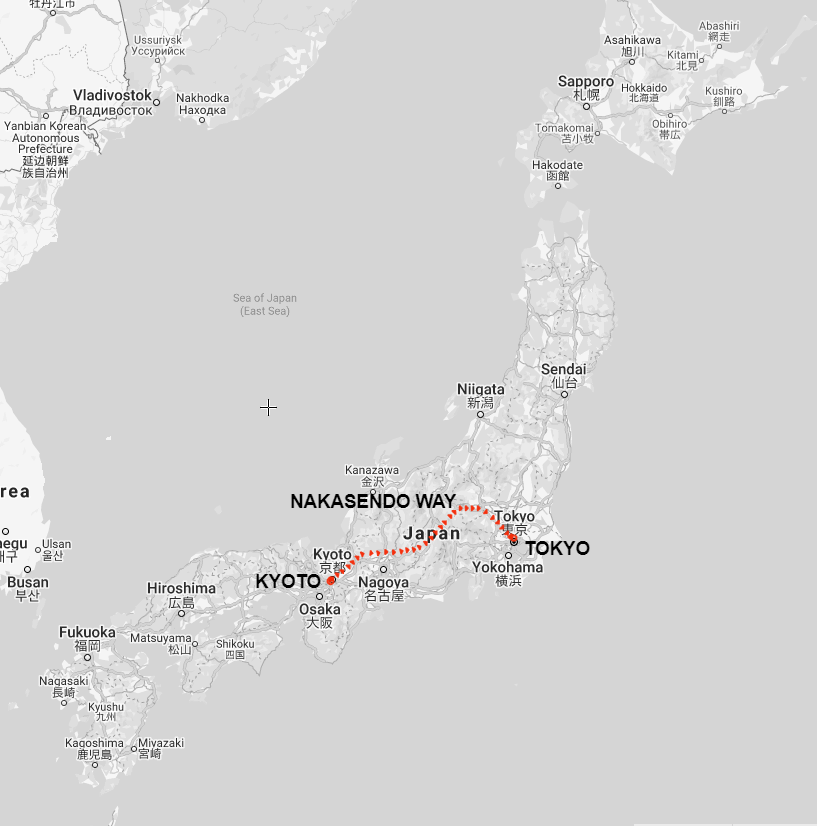
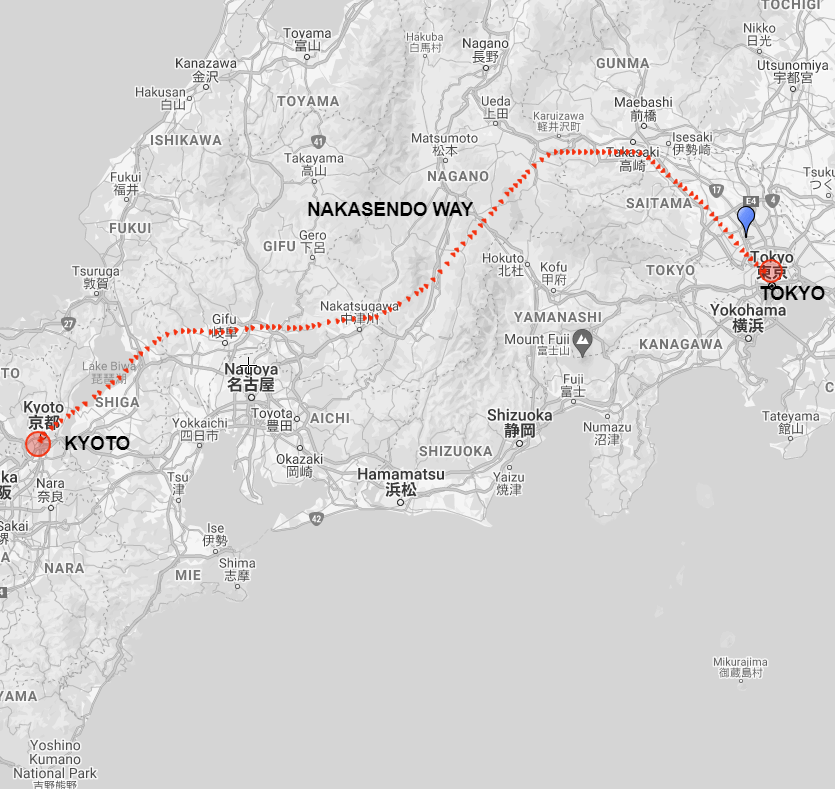
DEPARTURE DATES
sections
The 500km long Nakasendo trail (literally meaning the ‘Middle Mountain Way’), has become one of Japan’s most famous hiking routes because of its breathtaking scenery. The walk makes its way over ancient paved paths, through well-preserved authentic Japanese towns, via cypress and cedar forest. Shrines and waterfalls dot the landscape as you make your way through the Kiso Valley, wedged between the sacred mountain of Mount Ontake and Mount Komagatake.
The walk was developed in the Edo period (1603-1868) and was used by feudal lords, samurai and merchants to provide access between Kyoto and Edo (now Tokyo). There are 69 ‘post towns’ or resting places en route, where you can stay in traditional Minshukus or Ryokan inns and bathe in hot springs. You have the option to shorten some of the days if you wish.
HIGHLIGHTS:
- Walk pack free on well-graded ancient trails, with superb views, through beautiful Japanese forest
- Experience historically significant post towns
- Soak up Japanese culture, passing rice paddies, Japanese gardens and traditional shops
- Pass through iconic Japanese red torii gates
- Visit the impressive Karasawa waterfall
- 6 nights accommodation in a family-run or small traditional Japanese Minshuku or Ryokan, some with onsens
- Daily Japanese breakfasts and dinners mostly served in elegant tatami mat settings
- 6 nights stay in an intimate family-run or smallish traditional Japanese ryokan accommodation
- Explore the beautiful Kaida Kogen Plateau in hills north of Kiso-Fukushima
- Walk with a light pack, with luggage transfers most days from accommodation to accommodation (please see Luggage Transfer section in General Info for details)
- Superb traditional multi-course meals for breakfast and dinner each day
- Itineraries can be flexible to shorten the walking or slow the trip down by adding more rest days
- Enjoy worry-free navigation with Stroll’s comprehensive walk notes
- On the ground support from local representatives
One of the highlights of this trip is staying each night in an excellent Ryokan or Minshuku.
Ryokans are what we would call a guesthouse and they are often quite different both in style and size.The rooms are in a Japanese style with tatami mats, shoji sliding doors, and futons for sleeping on. The larger Ryokan style hotels rooms may have actual beds but not always. Note that the rooms may or may not have ensuites.
The Onsen or bathing area is central to the experience of staying at Ryokan. The Onsens are usually communal and separated by gender.
The Japanese dinners and breakfast are much more elaborate affairs then what we are used to in the west. Almost always a traditional Kaiseki set meal is offered. There are options of eating from a buffet at the larger Ryokans.
A Minshuka is a family-run accommodation are more like a bed and breakfast with just say 2 to 4 rooms. The are very common in rural Japan and only usually frequented by Japanese people. The advantage of staying at a Minshuku is that you get to meet the local people and enjoy the Japanese culture at a much deeper level. The atmosphere at a Minshuka is more like that of staying in someone’s home with traditional meals served in a more intimate fashion. Note that baths and toilets are often shared.
Please note that we will endeavour to book the accommodation displayed. However, if it is not available, we will book alternative accommodation of the same standard.
TRAVEL TO ENA
Tip – if you have not invested in a JR Rail Pass (only available outside Japan), you can save some money by buying a Non-Reserved Seat on the Shinkansen rather than a Reserved Seat. Check the Japan Transit Planner website (https://world.jorudan.co.jp/mln/en/) for approximate travel times and pricing.
You can get tickets from the JR ticket window just before the Shinkansen barrier gates. Even if you have a JR Rail Pass (which covers the cost of all JR line travel), you will need to show some sort of ticket to indicate your seat.
TRAVEL FROM TOKYO TO NAGOYA
Take the Tokaido Line Shinkansen bullet train from Tokyo Station to Nagoya.
Approx. travel time 1hr 45mins.
Tip – try to get a window seat on the right-hand side of the train for possible views of Mt Fuji on a clear day.
TRAVEL FROM OSAKA TO NAGOYA
Take the local train from Osaka to Shin-Osaka. Take the Tokaido Line Shinkansen bullet train from Shin-Osaka Station to Nagoya.
Approx. travel time 48mins.
TRAVEL FROM NAGOYA TO ENA
On arrival in Nagoya, take the JR Chuo Line (Rapid) from Nagoya to Ena. The Rapid service stops less often than the Local service. Both are of the same price and stop in Ena. Approx. travel time 1 hr. Cost (if no JR Rail Pass) approx. AUD$10.
The free “Japan Direct” rail app is very useful. Enter your station of origin and destination and all services, travel times, and costs are displayed. There is also an option to select for routes when travelling “with Japan Rail Pass”, too.
HIGH SEASON
In Japan, there are some periods when locals travel en masse as they are on holiday. These times are best avoided as the accommodation costs escalate considerably (more than double). It would make a lot of sense if you could avoid these times. Otherwise, see below for high-season periods. This could lead to the cost of the trip increasing significantly.
NEW YEAR PERIOD – 30TH DECEMBER TO 4TH OF JANUARY
GOLDEN WEEK – GENERALLY BETWEEN 29TH APRIL TO 5TH MAY
OBON PERIOD – MID-AUGUST ( BETWEEN THE 10TH TO 20TH OF AUGUST)
Please speak to the office to get a quote for the above times
DEPARTING FROM YOKOKAWA OR KARUIZAWA TO TOKYO
At the end of your holiday you will have details for travelling back to Tokyo from either Yokokawa Train Station or Karuizawa.
PUBLIC TRANSPORT
On this walk, you will need to catch some buses and have the option of catching them to shorten some walk days also. Most of these rides will be very short. You won’t be able to pre-book any of these rides but catching them on the day is a seamless process. These bus fares are at your own cost.
LUGGAGE TRANSFERS
This walk has the luggage transferred most days; we will let you know when we can’t move the bags due to the remoteness. The luggage will be waiting for you at the following accommodation. In the evenings, you will be supplied with a yukata (Japanese Gown) to wear so you will need to carry only essential items on those days when your luggage isn’t available.
AVAILABILITY
Autumn and Spring are the best times to walk. Summer is good too, it can get warm but it is possible to take a swim as you walk. Winter can be a bit more challenging due to snow and less daylight hours but it is still possible. You will need snow gear. Please keep in mind some accommodations close down from late November to February.
WEATHER
From the end of March, the temperature increases to make it a very pleasant time to walk. In summer it’s quite warm and humid in Japan but still good for taking on the trail. There is also more of an opportunity to take a swim in a stream. Autumn is said to be a very good time to walk the trail
The walk is offered in winter but not recommended as many of the accommodations close and it may snow. If you do walk at this time you will need proper winter walking gear.
As walkers, we believe spring and autumn to be the best time as the weather is perfect for walking.
See the weather information about the local average weather at different times of the year.
INSURANCE
We require that you have adequate travel insurance against potential losses, damage or injury, including cancellation costs and loss of luggage.
For all trips that require international travel, you must have purchased travel insurance that also includes medical evacuation coverage.
We also charge a cancellation fee if you cancel your walking holiday after we have confirmed it to cover costs incurred from our suppliers and in the office. See the FAQ section for more information.
INFORMATION PACK
For nearly 30 years we have taken pride in providing seamlessly organised walking holidays, but we know, even with that in mind, that you’ll have many more questions. You will receive a very detailed information pack and itinerary approximately 6 weeks out from departure outlining all the fine detail and much more.
CONTACT
If you have any questions, feel free to ask one of our destination consultants. You can get in touch with us via our contact form or email us at info@stroll.com
-
DATESAVAILABILITYPRICESingle OccupancyDETAILS
-
Date1 Mar 2024 - 30 Nov 2024AVAILIBILITYAVAILABLEPRICEfrom £ 1725SINGLE OCCUPANCY£ 235DETAILS
-
Date1 Mar 2025 - 30 Nov 2025AVAILIBILITYAVAILABLEPRICEfrom £ 1810SINGLE OCCUPANCY£ 245DETAILS
-
Date1 Mar 2026 - 30 Nov 2026AVAILIBILITYAVAILABLEPRICEfrom £ 1915SINGLE OCCUPANCY£ 255DETAILS





